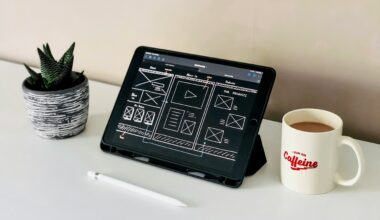Introduction
Custom software transforms industries by addressing unique challenges with tailored digital solutions. Businesses across retail, healthcare, manufacturing, finance, and more have leveraged bespoke applications to streamline processes, improve customer experiences, and gain a competitive edge. This article showcases 12 impactful custom software case studies, real-world examples of innovative solutions in action. We dive into each industry use case, highlight key features of the custom system, and report on the impressive results achieved. By the end, you will see how custom applications can drive real value.
Industry Case Studies
Organizations often need off-the-shelf software to be customized or built from scratch to fit their exact workflows.3 For example, a luxury retailer might require a virtual fitting room, while a bank may build a blockchain-based payment platform. The following case studies illustrate how custom software was developed for different industries. Each example includes Key Features and Results of the solution implemented.
1. Fashion Retail – Thomas Pink’s Virtual Fitting Room
Thomas Pink, a high-end shirtmaker, wanted to enhance its online shopping experience for custom-fitted shirts. They partnered with Fits.me to create a Virtual Fitting Room. This bespoke solution allowed shoppers to input their body measurements and see a realistic 3D rendering of how shirts would fit.
- Key Features: The custom application integrated Fits.me’s virtual try-on technology directly into Thomas Pink’s ecommerce site. Shoppers could select a model closest to their shape and adjust size settings. This required tailoring the software to Thomas Pink’s product catalogue and garment measurements.
- Results: The virtual fitting room significantly improved customer experience and conversion rates. By accurately simulating fit, it reduced returns and boosted online sales. Thomas Pink’s solution “significantly improved the customer shopping experience and boosted digital sales,” demonstrating how a tailored app can directly increase revenue.
2. Quick-Service Restaurants – Domino’s Pizza Tracker and AI Ordering
Domino’s Pizza is famous for its technology-driven ordering. The company built a custom suite of solutions, including the Domino’s Pizza Tracker and voice ordering assistants.
- Key Features: Domino’s developed its own ordering platforms (web, mobile, and even voice-controlled apps) with real-time tracking of each order.7 They integrated GPS, SMS updates, and a customer dashboard (“Pizza Tracker”) so diners could watch the pizza’s progress. This involved custom middleware to connect point-of-sale, kitchen operations, and delivery logistics.
- Results: The innovative system transformed customer engagement. For example, Domino’s reports that digital sales (online/app orders) continue to climb thanks to these features. Their voice ordering (via Alexa and Google Home) and tracker have driven greater loyalty. Orders through the tracker rose substantially. By “revamping digital ordering” and offering a fun, transparent experience, Domino’s kept growing market share and improved order accuracy.
3. Beverage Manufacturing – AB InBev’s Supply Chain Blockchain
AB InBev, one of the world’s largest breweries, overhauled its supply chain with custom IoT and blockchain software to boost efficiency across breweries globally.
- Key Features: AB InBev introduced a blockchain-based platform to track raw materials and finished products.9 Custom software was developed to integrate IoT sensors on kegs and pallets, capturing data from breweries to distributors. The system provided “real-time data” about production and inventory. It also automated ordering and logistics (Kanban shelves with RFID tags) throughout the supply chain.
- Results: By digitizing the supply chain, AB InBev achieved far greater transparency and speed. Real-time inventory monitoring “provides a complete overview of the flow of goods and stock levels.” The RFID-enabled process reduced manual tracking and cut waiting times. AB InBev reported “smooth, predictable throughputs and a reduction in waiting times” after implementation. This kind of digital transformation improved operational agility and helped the company better meet demand globally.
4. Real Estate – Landmark Properties’ Automated Workflows
Landmark Properties (a student housing real estate firm) needed to streamline how its marketing and operations teams handled requests and approvals. They turned to a custom low-code workflow platform.
- Key Features: Landmark implemented Kissflow’s low-code development platform to build custom apps for marketing requests, service orders, and property management workflows. Instead of emails and spreadsheets, teams now submit work through a centralized portal that tracks every request. Landmark’s developers and power-users configured forms, automations, and reporting to match their exact processes.
- Results: The new system allowed Landmark to “streamline requests and make it easy to track all communication within the platform.” Since adopting this custom workflow tool in 2015, the firm has scaled up, managing 74 properties across multiple brands through Kissflow. As one property manager noted, the platform’s flexibility and transparency “fostered greater collaboration” and efficiency. Overall, Landmark achieved faster approvals and clear visibility of tasks, illustrating how custom automations can optimize an organization as it grows.
5. Manufacturing – Advanced ERP for Production Efficiency
A large manufacturing company consolidated its fragmented systems by building an Advanced ERP (Enterprise Resource Planning) platform from scratch.
- Key Features: Developers at XB Software created a centralized web-based ERP that integrated production scheduling, inventory management, maintenance, and reporting. The custom application included Gantt-chart-based planning, real-time warehouse updates, a breakdown maintenance module, and data visualizations. It also featured a mobile interface so workers could access work orders on tablets in the factory.
- Results: The tailored ERP replaced several outdated legacy tools, enabling “greater control over production, inventory, and finances.” Users could now monitor manufacturing in real time, produce automated reports, and easily track every item’s journey. As a result, the manufacturer “streamlined workflow, improved productivity, and increased income.” This case shows how bespoke ERP software can unify operations and drive operational excellence.
6. Healthcare – Chain of Private Hospitals (Custom EHR)
A network of private hospitals aimed to eliminate paperwork and speed up patient intake. They deployed a custom Electronic Health Record (EHR) and management system designed for their needs.
- Key Features: The solution was a mobile-friendly EHR app tailored to the hospital workflow. It allowed registration clerks to scan IDs, enter patient data on tablets, and sync records instantly across departments. Custom modules were added for lab ordering, billing, and patient portals. Security and compliance (HIPAA) were integrated end-to-end.
- Results: The impact was dramatic: a hospital chain cut patient registration times by 60% using the new EHR software. Lab results and charts became instantly available to doctors, reducing delays in care. Staff productivity rose since nurses and admins spent far less time on data entry. This example highlights how a highly-customized healthcare system, designed to fit specific workflows, can sharply improve efficiency and patient satisfaction.
7. Banking/Finance – Prosperity Financial Group’s Blockchain Payments
Prosperity Financial Group, a large investment and retail bank, overhauled its payments platform with a custom blockchain-based system.
- Key Features: The bank partnered with a fintech provider to build a distributed ledger for domestic and international transfers. The platform used blockchain “smart contracts” for secure, instant settlement and multi-party workflows (e.g. loans, invoices). They also revamped the customer apps to support real-time balances and peer-to-peer transfers. The system was built with modular architecture to scale as needed.
- Results: After deploying the custom blockchain solution, Prosperity Financial Group saw a 40% reduction in transaction processing times. Security incidents dropped significantly due to the immutable ledger. Customers enjoyed faster, more transparent payments, which boosted satisfaction by 30%. Automated smart contracts halve loan processing errors and delays. By essentially rewriting their backend system, the bank firmly positioned itself as an innovation leader, showing how custom fintech software can revitalize legacy operations.
8. Energy & Utilities – Smart Energy Management System
A utility company serving both residential and commercial clients built a custom Energy Management System (EMS) for smarter monitoring and billing.
- Key Features: The EMS was a web portal connected to IoT smart meters across the grid. It collected live data on electricity, water, and gas usage. The custom software provided analytics dashboards, transparent billing histories, outage alerts, and maintenance scheduling. Different user views were created. Households could see consumption and pay bills online, while city engineers could monitor grid performance and plan infrastructure work.
- Results: After launch, the utility gained “better experience utilizing the system” and met all client requirements. The new system allowed managers to “identify opportunities for improvement, planning, and saving money.” For customers, easy access to usage data and automated alerts led to lower bills and higher satisfaction. Overall, the energy provider achieved reduced waste (by optimizing peak loads) and stronger customer loyalty through this tailored platform.
9. Hospitality – Hotel Management System (PMS Integration)
A hotel management software provider sought to make its platform more powerful. They worked with a custom software team to develop an integrated hotel management system for global hoteliers.
- Key Features: The custom solution is a cloud-based Property Management System (PMS) with B2B modules. It included online booking and reservation management, in-room guest communication chat, and mobile check-in/check-out capabilities. Guests could select room preferences online, while hotels could automate check-in. The system also integrated payment gateways for easy billing and an inventory module for rooms and services. Finally, it provided analytics dashboards on occupancy, revenue, and guest preferences.
- Results: Hoteliers who adopted the software report greatly simplified operations. Manual tasks like reservation entry and billing were automated, reducing errors and labour costs. Real-time data gave managers clear visibility of performance, improving decision-making. One hospitality executive noted that having a single unified system for bookings, payments, and analytics “minimized booking errors and enhanced revenue management.” This case demonstrates how a targeted custom PMS can digitize a traditionally manual industry and boost efficiency and guest satisfaction.
10. Automotive Manufacturing – IoT-Enabled Supply Chain (RFID/Kanban)
A major auto manufacturer in Germany pursued “the factory of the future” by implementing RFID-based Kanban automation in its production line.
- Key Features: The factory replaced barcodes with custom RFID tags on parts and kanban cards. The custom software tied together RFID readers, antennas and suppliers’ databases. Every bin and rack was tagged. As parts moved, the system automatically updated inventory levels and order requests. Standard software modules were adapted for easy supplier integration and live tracking of materials.
- Results: The digitized supply chain gave the company a complete overview of the flow of goods and stock levels in real time. This automation “significantly improved the logistics process” by making throughput smooth and predictable. Suppliers could respond instantly to needs, eliminating the 20-30% delays common with manual systems. In sum, the plant achieved higher production uptime and lower inventory carrying costs. This example highlights how custom industrial IoT software can revolutionize manufacturing operations.
11. Transportation – Uber’s On-Demand Mobility Platform
Uber (the ride-hailing giant) is fundamentally a custom software company. Its mobile platform and backend are built in-house to connect riders with drivers seamlessly.
- Key Features: Uber’s core software includes GPS-based matching algorithms, dynamic pricing (surge) logic, and real-time vehicle tracking.16 The company developed proprietary mobile apps (iOS/Android) and server systems for dispatch, payments, and driver tracking. Additional custom features like split fares, in-app messaging, and ride-scheduling were added to meet user needs. Over time, Uber continuously updated its stack (e.g., self-driving and scooter integration) by building custom modules.
- Results: Uber’s platform reshaped urban mobility.17 Riders experience a one-tap booking and instant updates: “an individual may use to submit a trip request that is automatically delivered to a nearby Uber driver.” Millions of trips are completed daily on the system. The efficiency gains are dramatic. Rides that once required phone calls or hail-and-wait are now immediate. Uber’s scale (serving thousands of cities) and extensions (Uber Eats, etc.) underscore how powerful a well-executed custom mobility app can be. This case illustrates custom software driving a whole new industry.
12. Insurance – Lemonade’s AI Claims Bot
Lemonade, a fintech insurance startup, replaced traditional claims processing with AI-powered software. Their custom bot “AI Jim” handles claims in seconds.
- Key Features: Lemonade built a chatbot interface and machine learning backend that underwrites and pays claims automatically. Customers simply report losses via a mobile app. The custom software runs dozens of fraud-checking algorithms in parallel. If all rules pass, it instantly approves and triggers a bank transfer. The app also learns from data to continually improve its models.
- Results: In 2016, Lemonade’s AI set a world record: a renter’s claim was reviewed and paid out in just 3 seconds. Around 30% of claims are fully auto-approved by AI Jim, drastically cutting workload on human adjusters. Users rate the experience highly (“Five stars!” on-screen). The result is higher customer satisfaction and much lower overhead costs. By automating email and paperwork, Lemonade offers insurance policies for a few dollars per month instead of hundreds, a game-changer in an industry known for red tape. This example shows how custom AI software can radically transform service speed and customer experience.
Key Features and Results
Across these industries, innovative custom solutions share some common traits: they integrate with existing systems, automate manual processes, and provide real-time insights. For example, custom ERPs and IoT dashboards unify data to eliminate silos. Automated workflows (like Landmark’s forms or Lemonade’s chatbots) remove repetitive human tasks and shrink processing times. Tailored user interfaces (mobile apps, VR fitting rooms, guest portals) enhance user engagement and satisfaction.26 The result is consistently higher efficiency and growth: faster service delivery, reduced errors, and often double-digit improvements in KPIs. Each case above demonstrates how aligning software capabilities exactly with business needs, rather than forcing a generic product fit, leads to transformative results.
Businesses looking to achieve similar outcomes should think creatively about custom software development. By identifying unique challenges and opportunities, they can build systems that give them an edge. If your organization needs a tailored solution, whether it is a next-gen mobile app, a machine learning system, or an integrated enterprise platform, reach out to the experts.
Ready to build your own custom software solution? Contact Empyreal Infotech today for a consultation on how we can tailor technology to your industry’s needs. We will help you identify opportunities, design innovative features, and achieve results that drive your business forward.








